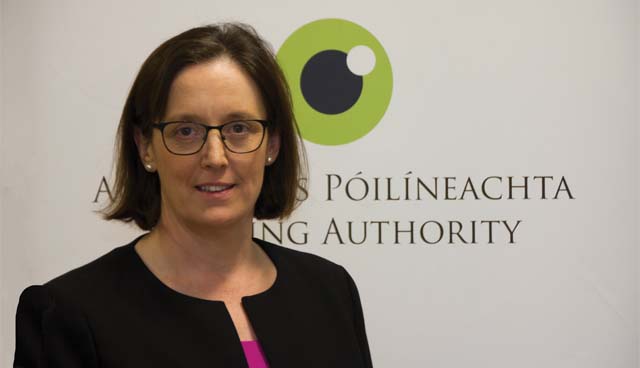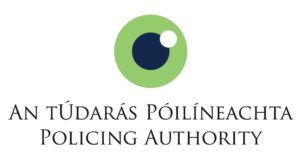Strengthening policing oversight during Covid-19 by listening to communities

The Policing Authority is an independent statutory oversight body with a core function of monitoring and assessing policing performance, writes Helen Hall, Chief Executive of the Policing Authority.
An enduring challenge for the Authority is to assure itself that how it measures policing performance is aligned and in tune with the views of the community in all its diversity. This means seeking to understand what constitutes for the public an effective, valued, responsive policing service that they have confidence can and will keep them safe.
While it may be too early to adopt a retrospective view of the pandemic, from the perspective of policing oversight, this period presented enormous challenges for policing. The introduction of emergency powers and regulations encroached significantly on the rhythms of daily life and indeed on individuals’ human rights. Charged with a requirement to report to government on the use of these powers, the Authority recognised early on that in addition to Garda data, the lived experience of policing during this period would offer important insights into how these powers were being used and experienced across society. The Authority was particularly alert to the need to check the legality and proportionality of the use of emergency powers and the consistency of their use in communities that had traditionally not enjoyed a positive relationship with An Garda Síochána.
A dedicated programme of stakeholder engagement was commenced to support oversight during this time that saw the Authority engage on a sustained basis with a variety of organisations and communities at national and grassroots level. The emphasis was on listening to a diversity of experience, in particular to what might have been more usually characterised as the voices of the ‘hard to reach’ but which the Authority chose to interpret as those that are seldom heard. In many ways, the exigencies of the pandemic, including the possibilities offered by teleconferencing technology to meet with people the length and breadth of the country, had a catalytic impact on the Authority’s existing levels of engagement with organisations and groups.
There was no rigour to the methodology employed and no claims made as to its objectivity. The simplicity of the engagement — just listening — did not in any way undermine the richness and impact of the work; or the influence it came to have on the Authority’s oversight generally. Attempts to capture the views of an ‘aggregate person’ through research vehicles such as attitudinal surveys, while valuable, frequently do not ask questions of certain communities in sufficient numbers to allow that ‘seldom heard voice’ to come through. There was a recognition early on of the value of seeking out those voices and affording a validity to that lived experience.
That experience was articulated in the Policing Authority’s reports to Cabinet, 15 of which have been published to date. It made no claims as to its generalisability, rather it sought to present the particular. It gave visibility to the very different experiences of policing during the pandemic, both positive and not. It also revealed aspects of policing that were of value to communities during this time: for example, policing presence rather than just police visibility, and the tone of policing.
The Authority remains indebted to all those who have engaged with it to date for the candour and thoughtfulness with which they have approached these conversations. The relationships built during this period will continue to assist the Authority in its oversight as listening will remain a key component within the Authority’s next three-year strategy (2022–2024).
T: (01) 858 9041
E: info@policingauthority.ie
W: www.policingauthority.ie






